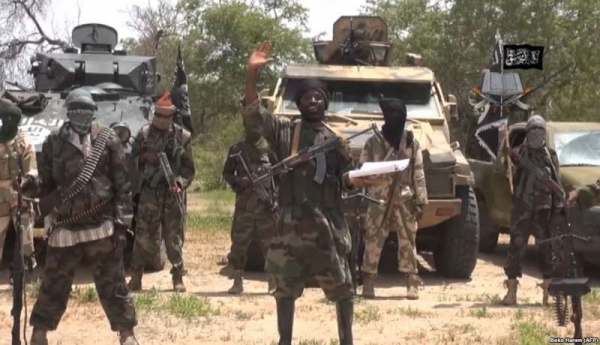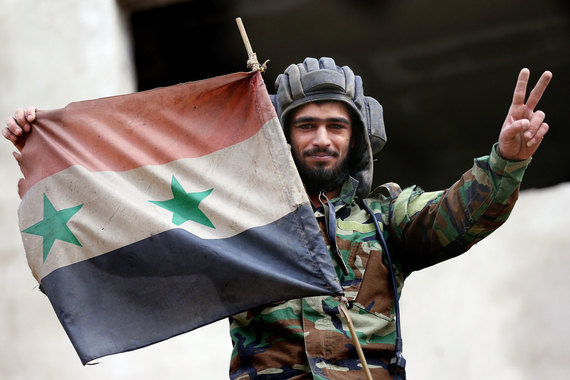What about the Russians?
- Today, 06:07
Solving the “Syrian question”, the Kremlin looked to the North Africa, where the peaceful people they attack Islamic radicals. Some European analysts think the Russians are planning to “increase political support” of the Maghreb. Special attention to the Kremlin will pay, Tunisia and Morocco. People from there came to bow to Moscow. Meanwhile, in NATO believe that Putin planned to “split” the Alliance, carrying out some strategy in the Mediterranean.

“The new Mediterranean policy of Russia took real shape,” — said in the article by B. Virtsu on the resource “Boulevard Voltaire”.
The announcement of a partial withdrawal of Russian troops from Syria “in the context of strengthening the symbolic and diplomatic interventions of the Kremlin” made of other Western analysts to remember about “the emergence of the Russian submarine with ballistic missiles off the French coast”. Remembered and “demonstration of force” in the Mediterranean sea.
Also, it is believed that Russia could provide support to Tunisia, which is becoming more popular Islamist movement “Ennahda”. This party will clearly lead to the collapse of the country according to the Libyan scenario in addition, jihadism blossoms magnificent color in côte d’ivoire.
At the same time, Moscow supports Morocco in Western Sahara, where we are talking about “Algerian claims”.
In fact, today we are talking about a “new Mediterranean policy of Russia, believes the author. The Russians, who gave the world “the Syrian example” (the real policy based on an obvious respect for the sovereignty, says Wirtz), apparently ready to convince its partners in the Maghreb and Mashreq that the overall strategy is simple enough gesture will.
Russia’s actions, as suggested by the journalist, followed the logic of “triple containment”.
First, it concerns “neoosmanizm project” Turkey, which ushered in peace, Prime Minister Ahmet Davutoglu in 2010, intending to restore the Turkish sphere of influence from Sarajevo to Cairo and from Morocco to Indonesia.
Secondly, this objection Arab oil monarchies.
Thirdly, it is the confrontation of the local Islamist movements that were received in the regions a fairly strong influence.
This strategy emphasizes entering the world of real multipolarity. This occurrence in the new world, it seems, will be accompanied by a new confrontation, and fear of the growing fragmentation of society.
Probably, in the short and long term interest of Moscow will represent the Mediterranean sea. However, the analyst believes that Russia in its strategy is unlikely to be aimed at “zero hegemony”, however, restore order in the Mediterranean, she probably could.
Muslim governments in different States have already faced Turkish influence and destabilization on the periphery caused by jihadist movements (the Caucasus and Central Asia). Therefore, Russia’s desire to develop an alternative policy towards the Muslim world and adopt a policy of “multipolarity” not just supported, but has a certain geopolitical “imperative”.
However, the strength of such policies in the long term, can show only time. In any case, according to Wirtz, changes in domestic politics and in geopolitics in the eyes of the observers blend in “fascinating” history.
What is this “fascinating” story takes place in the Mediterranean, where Europeans see Russians?
We will remind, the Russian Mediterranean groups (on a rotational basis) now carry out the tasks more than half a dozen ships and support vessels of the Northern, Pacific, Baltic, black sea fleets of the Russian Federation.
All this is not like NATO.
The NATO Secretary General “expressed concern” about “the revitalization of Russia” in the Eastern Mediterranean. He said this following the meeting with Prime Minister of Turkey Ahmet Davutoglu, according to “Tape.ru”.
For already established habit Jens Stoltenberg has laid on Russia responsible for the growing number of refugees from Syria to Europe: “Russian military activity has energized the humanitarian crisis and prompted more people to the borders of Turkey. It has also led to violations of its airspace”.
As stated Stoltenberg, the Alliance will increase the presence of air force and Navy near the borders of Syria and in the Eastern Mediterranean with the aim of enhancing intelligence and support Turkey: “We face serious challenges to our security from the South, and Turkey is at the forefront. NATO stands shoulder to shoulder with one of its members — Turkey. We have decided to increase the efforts of the Alliance to gather intelligence in Syria. The Alliance will increase the number of flights by its AWACS to monitor the situation and will increase their naval and air presence in the Eastern Mediterranean”.
Later, the NATO Secretary General made a further statement.
Giving an interview with CNN, Jens Stoltenberg said that Russia is trying to split NATO.
“For a long time we see that Russia is acting more confident”, — quotes Stoltenberg “Vedomosti”.
According to the Secretary General, Moscow, Russia “uses various methods to intimidate their neighbors and attempt to split the Alliance”. “But we gave the answer to that, rallying the ranks in the Alliance and bringing our military policies into line with the new conditions in the sphere of security,” he said.
He spoke again about the Eastern Mediterranean. The Secretary General noted that NATO is concerned about the build-up of Russian forces in Syria, including “the placement of aviation and ground forces, military presence in the Eastern Mediterranean”. However, NATO on it has your answer: the Alliance “is stepping up its military presence in Turkey and the Eastern Mediterranean”.
In conclusion, recall that General Philip Breedlove, Supreme allied commander of NATO in Europe, said March 1 that the U.S. and its allies taking action in case of war with Russia in Europe, and the state Secretary of the Pentagon James Townsend, visited the Swedes, in an interview with the newspaper “Dagens Nyheter” told about “threatening” and “unpredictable” Russia’s foreign policy, said that Putin is “bullying the Balts”, and the Kremlin bombers already rehearsed the shot in Sweden. Not knowing what else to say, he called Russia “a tragic risk.”
Surveyed and commented Oleg Chuvakin
— specially for topwar.ru








